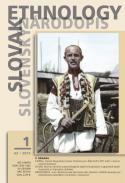
We kindly inform you that, as long as the subject affiliation of our 300.000+ articles is in progress, you might get unsufficient or no results on your third level or second level search. In this case, please broaden your search criteria.

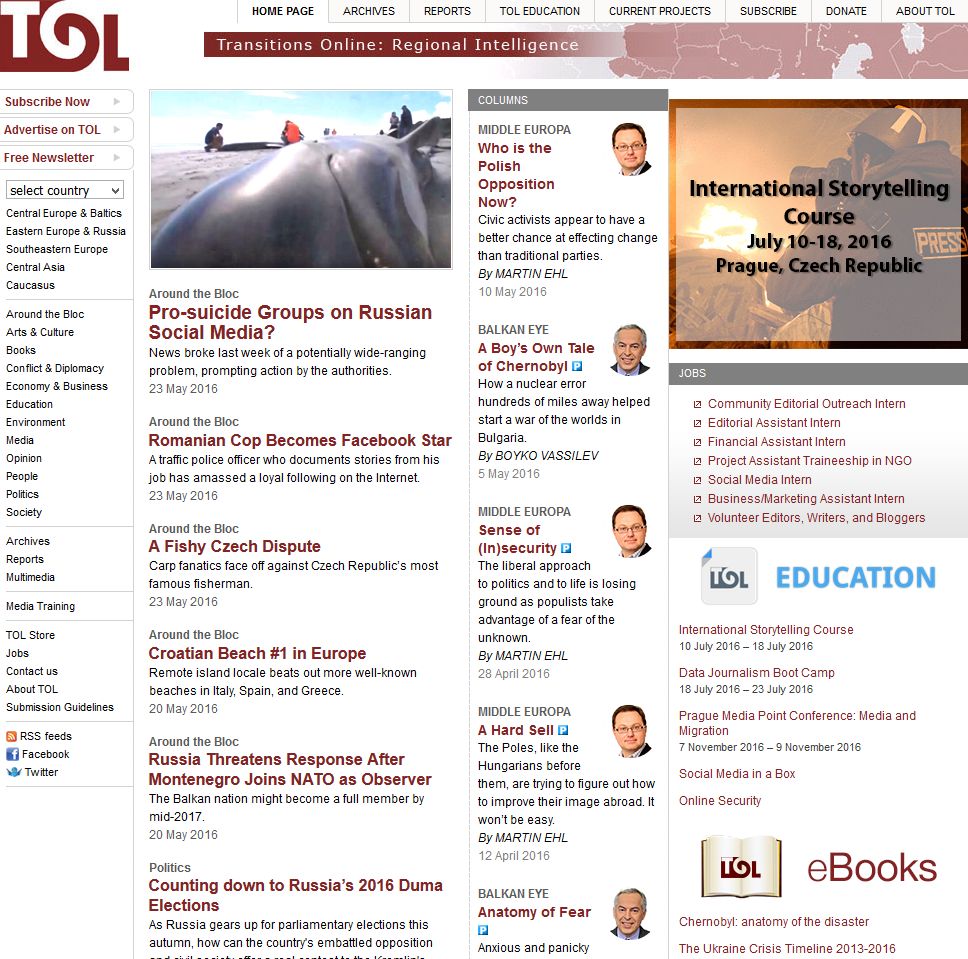
Latvia, Lithuania, and Poland were dubbed the worst three EU countries for sexual minorities in newly released ranking, while Azerbaijan came in last in Europe.
More...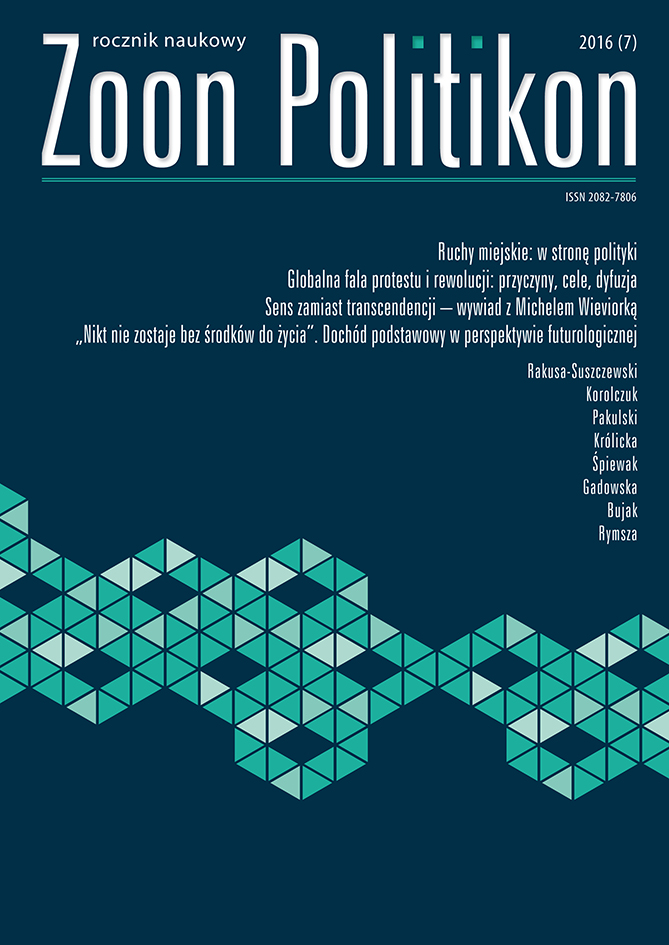
Contemporary populist movements – outlined as an ideal type (antielitism, demagogy, „citizenism”, conspiracy accounts, simple solutions, exclusivism) – are analysed according to the Weberian approach and research agenda. They focus on dominant orientations, the importance of leadership, relationships between leaders, activists and followers, and – importantly – on the cyclical trajectories of movements. Populist movements erupt at the times of rapid social change and the accompanying crises. They delay rationalisation of politics by causing degeneration of political elites and political „decay”, that is weakening the core political institutions of the state, rule of law, and democratic accountability of political leaders.
More...
The purpose of this paper is to present the development trajectory of urban movements in Poland. Urban movements are form of social answer to the crisis of liberal democracy and the neoliberal system. The article focuses on the issue of politicization of various social problems. Urban movements politicize issues that were not part of the public debate before. The critique of civic participation is accompanied by an appreciation of conflict that can revitalize local democracy and fill it with social content. Urban movements are becoming a new dimension of citizen engagement. It remains to be seen whether their ideals are compatible with the rules of politics and the power struggle.
More...
The article presents the activities of social movements for Ukrainian language in Ukraine since the Orange Revolution till present time (2005-2017). It explores strategies employed by these movements and fields of their operation (including struggle for consumer rights, grassroots production and distribution of Ukrainian language content, promotion of Ukrainian language use, legislative initiatives) as well as their prospective influence on state policy.
More...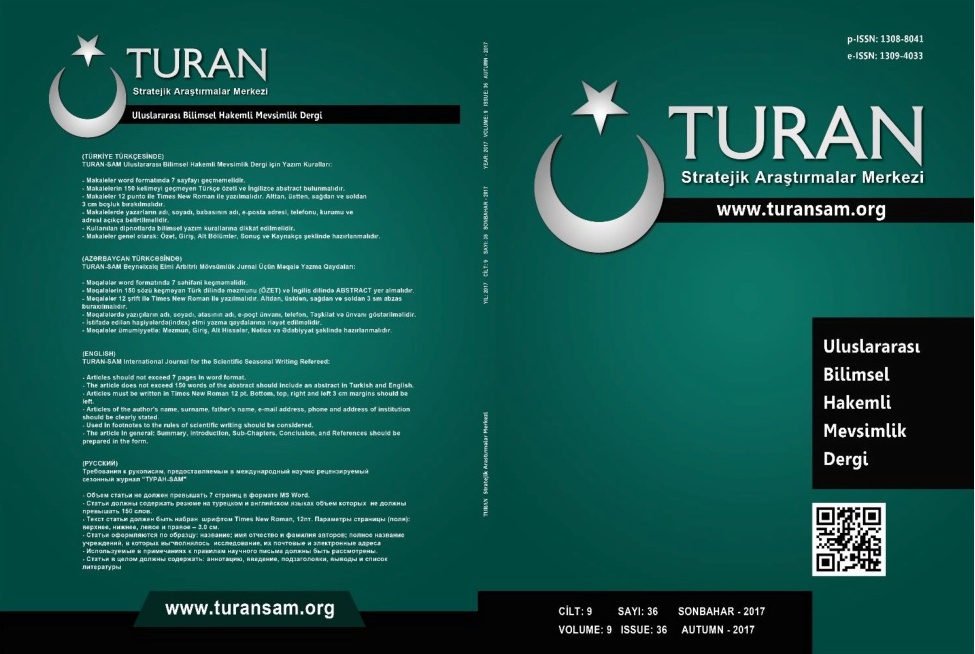
A definite defeat of Anatolian Seljuk Sultan II. Gıyaseddin Keyhusrev against the Mongol commander Baycu Noyan in Kösedag constituted a turning point in Turkish history and caused the beginning of Mongol domination period in Anatolia. The 1243 defeat lived as a painful memory among the Anatolian Turks, and they thought what Ahir time had lived. The dominance of the Ilkhans in Anatolia can be examined in three periods: Tabilik, Occupation and Shadow Sultanate. In almost all of these periods, Anatolian Turks have been devastated by political, social and economic disruption. While the struggles against ilhanhans under these adverse conditions were made by the Turkmen Emirates and the Seljuk lineages, The Mongolian Noyans also attempted to rebel against their own hans. As a result, these revolts left quite a deep impression on the political, social and administrative area in Ilkhani State. The provincial and most important of these are Bayda and Baltu Noyan revolts. In this study, we will focus on the causes and consequences of the Baydu and Baltu Noyan rebellions that caused political turmoil in the ilhan state, and we will try to investigate their influence on the Anatolian Turkish history.
More...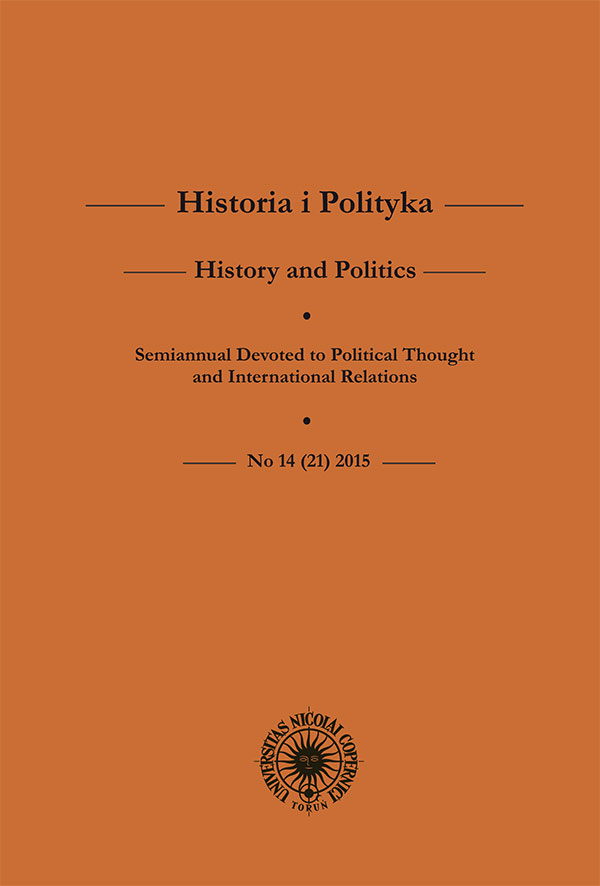
Radical Islam with its various types of manifestations is one of the significant challenges facing the modern world. This problem has also affected the societies of autonomous republics bordering Georgia to the north. In today’s North Caucasus, the activity of radical Islam followers has reached beyond the political (in many cases terrorist) niche and has acquired quasi-social characteristics. Furthermore, the facts and tendencies indicate that this part of the society (in this case youth) purposefully or unintentionally creates the so-called uncontrolled and/or less controlled subculture with different opinions, views, ideology, behaviors, in many cases clothes, hairstyle, etc. Radical Islam (in this case as a doctrine) regulates human conduct – provides advice, dictates how to act, and in fact it sets a dogma how to dress, how to behave in public, how to live, etc. Wahhabis/Salafis are forbidden to smoke tobacco, hashish, to use beads, sing loudly, dance, etc. It is worth to separately note the so-called aggressive wing of Wahhabism/Salafism or the terrorists, field commanders, etc. One of the motives for writing the article is to show readers the fact that radical Islam in North Caucasus is not solely a terrorist activity. It encompasses a much broader spectrum of the society, and at the same time it is much more than a religion. It sets the norms of social behavior and thinking, which in itself limits the formation of subjective attitudes. Exactly the lack of the latter generates the negative trend of their activities, which quite often are used for political actions by the respective forces.
More...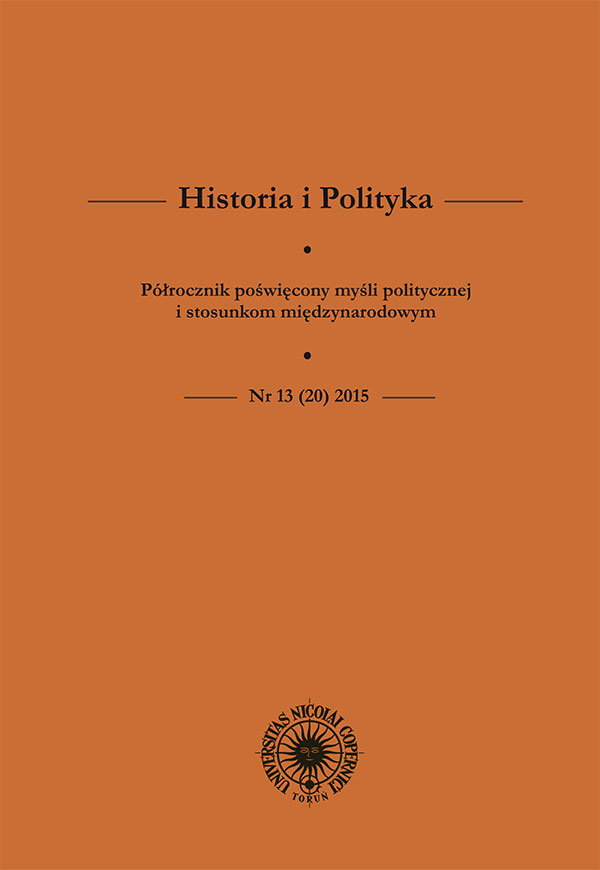
The fundamental aim of the article is the review of the radicalism manifestation within the social resistance in Poland in the context of the Czechoslovak 1968 events, their range, forms and intensity. The legislative acts and structures eradicating that type of occurrence are described briefly. The Russian intervention in Czechoslovakia in summer 1968, and also the escalation of social resistance in Poland since the beginning of the year, increased the radicalisation of protests. The so-called „Poronin operation” or the act of self-immolation of Ryszard Siwiec during the harvest festival in 1968 were the well known sings of protest of that period. The article outlines the radical forms of resistance in Poland in 1968 and, at the same time, it is an attempt at a careful reconstruction of the discussed matter. It was written on the basis of the archive records (MSW PRL Ministry of Interior and Administration documentation from Warsaw Institute of National Remembrance), literature, press and other sources.
More...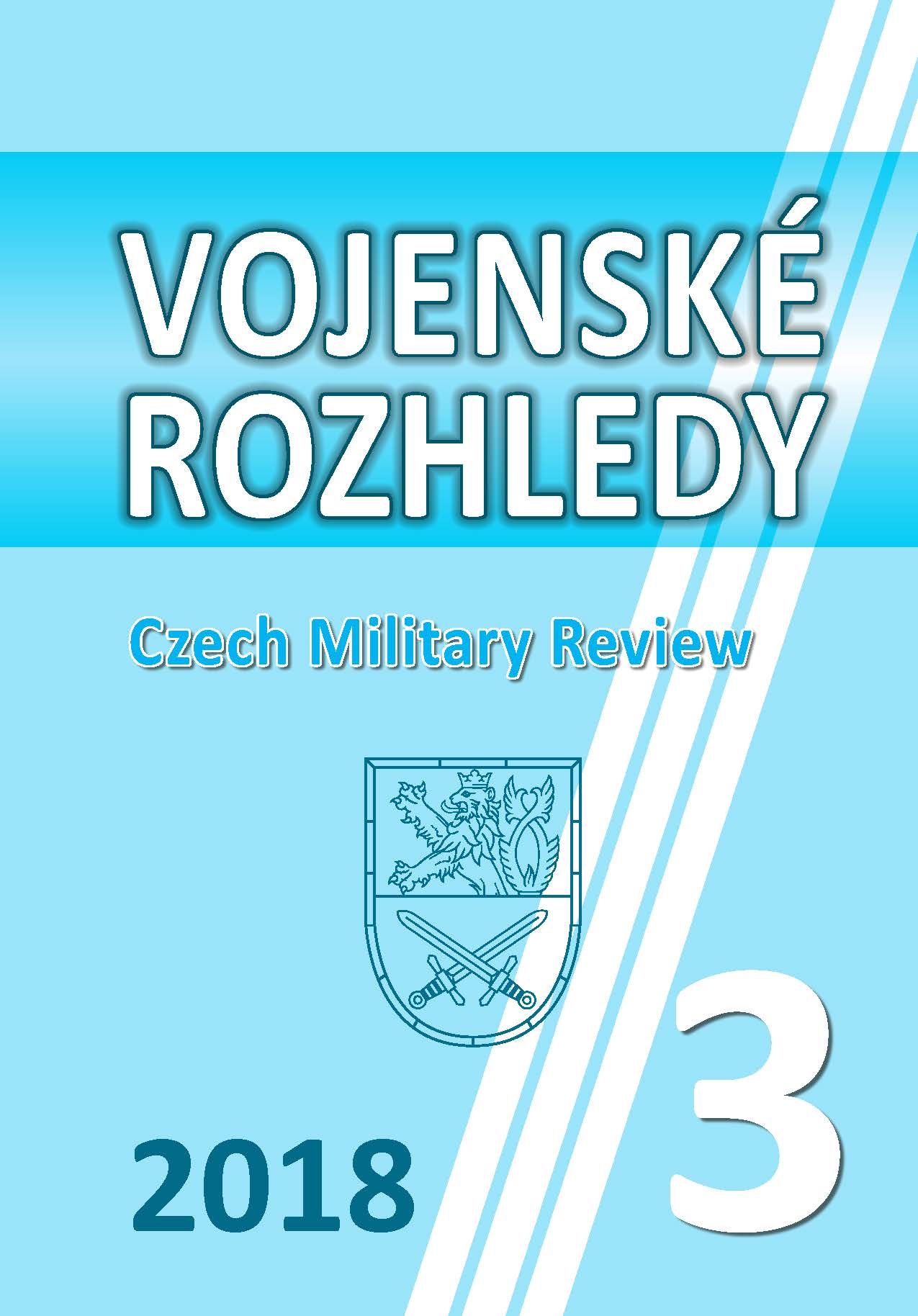
The paper deals with the process of radicalization in the armed forces in Central Europe, with specific focus on the Czech Armed Forces and the Bundeswehr. The author conceptualizes radicalization as a recent security threat and explains the specifics of the use of this concept in the armed forces. The most important historical legacies are identified and the current development cases and trends are analyzed and compared, including the specifics of various streams of extremism. Possible recommendations how to counter radicalization are included in the paper.
More...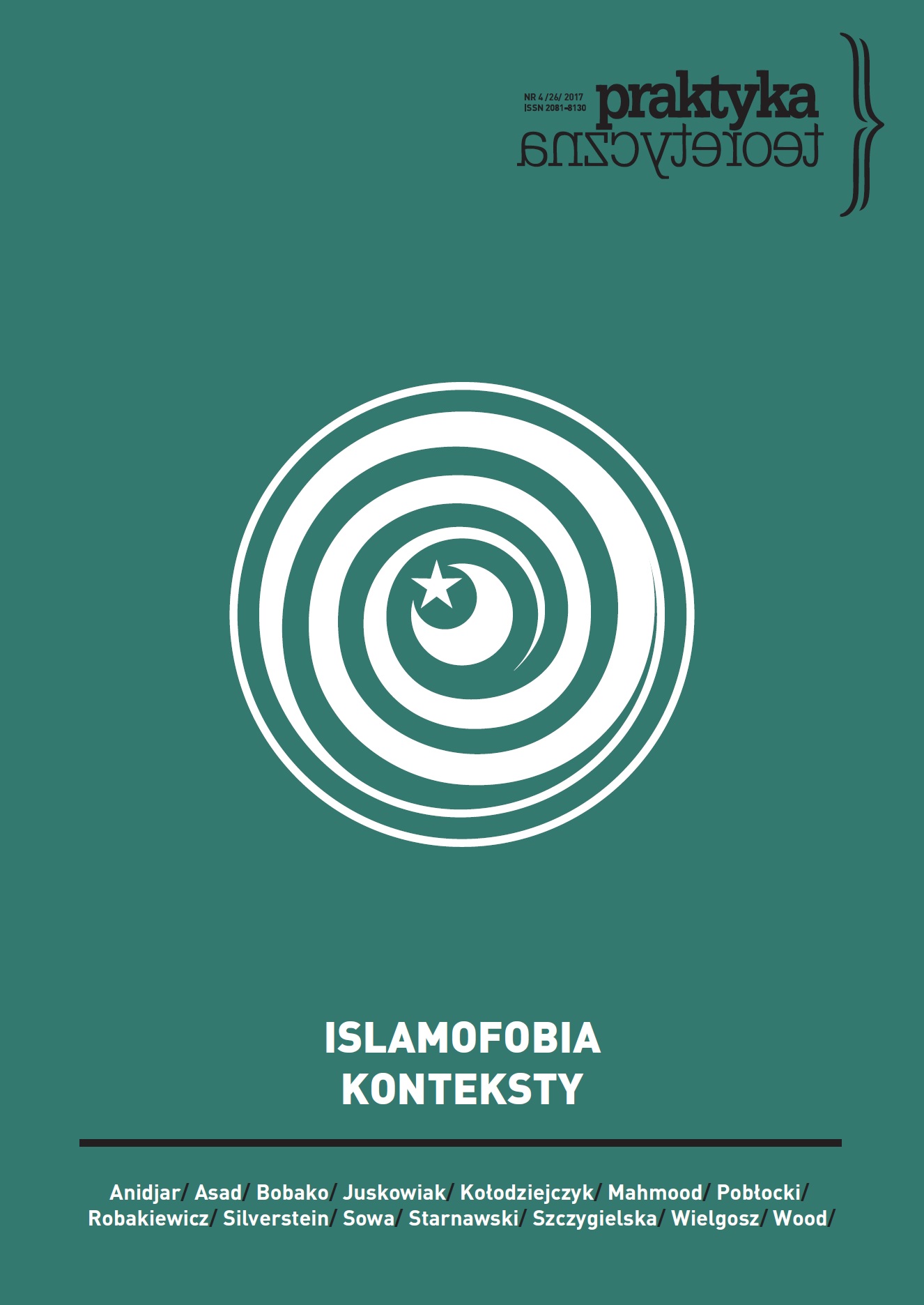
The primary goal of this article is to reinterpret the most essential recent transformations of the logistics sector (e.g. new forms and functions of infrastructure, innovations in the field of software and space production, specificity of logistical cities) from the perspective of critical urban studies. To do so, I draw inspiration from Marx’s conceptions of the circulation of capital and the annihilation of space by time. The first part of the article pays particular attention to two intertwined threads of late Marxian thought: the methodological primacy of movement, and the distinct role of transport in realizing and increasing surplus value. Both of these latter make it possible to see logistics as the logical result of the spatial dynamics of capital and the capitalist logic of acceleration analyzed by Marx in the second volume of Capital and Grundrisse. The article’s second part is an extensive interpretation of Marx’s concept of annihilation of space by time. Proposing three possible readings of this concept (compression, synchronization, and abstraction), I attempt to relate them to the logistic strategy of the creative destruction of space being undertaken thanks to the infrastructure of acceleration. In the third part of the article, I discuss these innovations of the logistics sector as a general tendency of contemporary capitalist development. For this purpose, I take up the notion of fabricating a world (Mezzadra and Neilson 2013a) as something that enables the exploration of the new geo-economic order as a result of changing forms of infrastructure power and of subjectivity production enacted through global factories (Cowen 2014b) and logistical cities.
More...
This text is a critical essay devoted to Kacper Pobłocki’s book Capitalism: A courte durée History and comprises a series of loosely interrelated comments regarding the methodological assumptions, explanatory value, novelty as well as social functioning of Pobłocki's book. Among the problems discussed, three have a dominant character. The methodological problem of explaining the beginnings of capitalism and the social character of the system (the debate between Marxism and the theory of dependence). Second, the relevance of historical counter-examples of non-capitalist social systems. And last but not least, the problem of teleology in historical explanations and its hidden presence in terminology used in the book suggesting a linear development of human history.
More...
This text is a reply to Jan Sowa’s article Capitalism: A court durée History - Nineteen Long Reads about "One Thousand Years of Slavery." The author addresses the arguments and objections formulated in the text, and presents his own opinion on the social role and the function of academic discourse. The main issues raised in the text are the relation of the author's project to the theory of Karl Polanyi (in particular his theory of the three fictitious commodities constituting the basis of capitalism), an interpretation of the theoretical meaning of the dispute about the notion of space in the analysis of capitalism, and the issue of the de-westernization of theory.
More...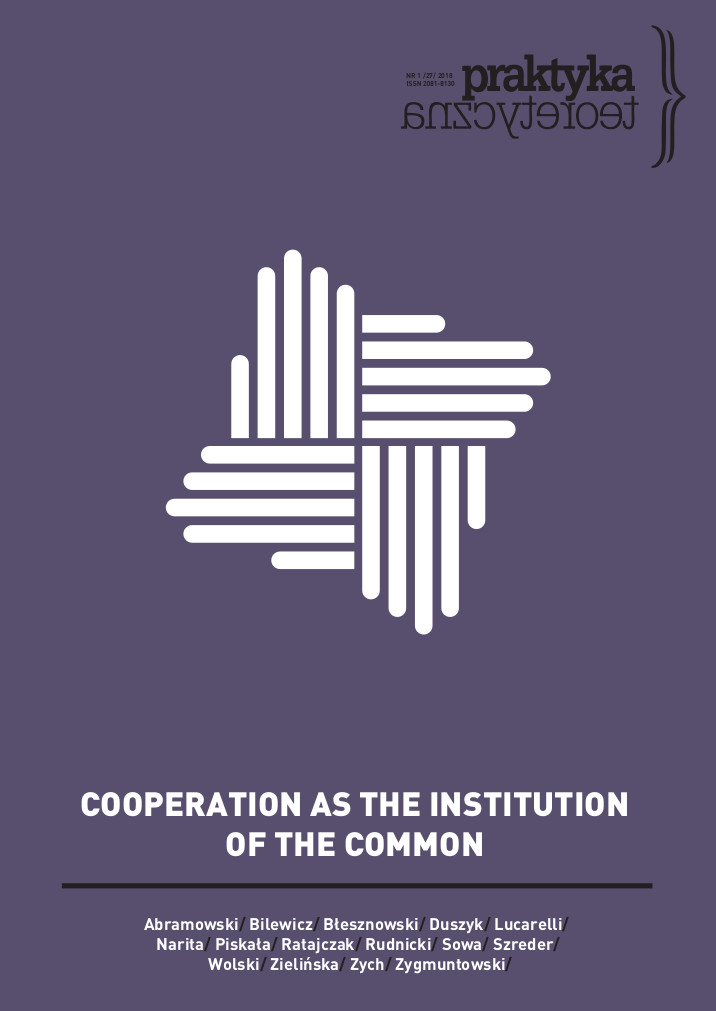

In this paper I trace the contradictions embedded in global artistic circulation, which is dialectically analysed as a nexus of exploitation and a site where the commons can be instituted. To enable this argument, I synthesise the methodologies of dialectical materialism, the sociology of art and action research, supplementing a theoretical overview of systemic pressures with a keen observation of the social practices that emerge in critical response to it. Basing my analysis on empirical evidence, I examine social conflicts, triggered by the extracting value from the distributed labour of artistic networks, as political opportunities to be seized by progressive art workers. Thus, I propose a new perspective on current processes of incorporating contemporary art into the late-capitalist cycles of accumulation and modes of establishing and reproducing social distinctions. Instead of mourning for – presumably lost but still positively valorised – artistic autonomy, I argue for a revamping of the apparatuses regulating artistic circulation for the sake of the labouring multitudes.
More...
This article discusses the most recent publishing projects devoted to the history and intellectual accomplishments of the Polish cooperative movement before 1939. It illustrates the political dimension of the concept of cooperation, the need to deepen the research on the symbolic universe of the movement and the effect which defining the peripheral status of the Polish economy had on the development of the economic analyses of the Polish cooperators. The political philosophy of Polish cooperativism, created primarily by Edward Abramowski, in many respects exceeds the limitations characteristic for the classical modern ideologies of the political left-wing, thanks to which it inscribes in the process of ―inventing tradition‖ by the modern emancipation movements in Poland.
More...
The essay is a review of Michael Hardt’s and Antonio Negri’s Assembly and it aims at a critical evaluation of its empirical relevance and political usefulness. It focuses on two issues. The first one is general and as such relates to the global context of struggles against capital: the notion of social factory and its implications for political action. The essay argues that the concept of social factory grasped an important development within twentieth century capitalism. It is, however, becoming more and more irrelevant as living labour is being systematically replaced by automation. Unlike the social media or other similar forms of “digital capitalism” analysed in Assembly, a very large part of automation does not depend on any kind of continuous, multitudinous human input. It rather aims at uploading the general intellect into the system of autonomous machines, making them independent from the human element. The second issue this essay examines is the recent populist-conservative turn and the situation of peripheral countries that had no part in the recent progressive cycle of struggles (Arab Spring, Occupy, Indignados). The essay points to a bias in the post-Operaist project – its focus on particular geographical and socio-cultural areas – that ignores the different social and political situations of some peripheral countries, especially those of Central-Eastern Europe.
More...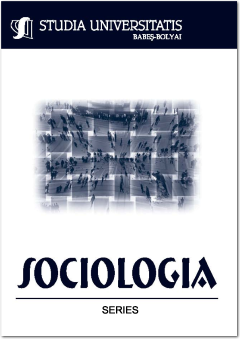
How producers of free digital goods can be compensated for their labour is a major topic of debate and controversy in Free Software and related fields. This paper analytically disentangles the multiple modes of remuneration in operation in Free Software and presents the implications from a political economy perspective. The outlook of autonomous commons-based production in information goods is situated in relation to capitalism. In the process, certain conceptual contributions are made regarding the nature of information goods and the commodity form.
More...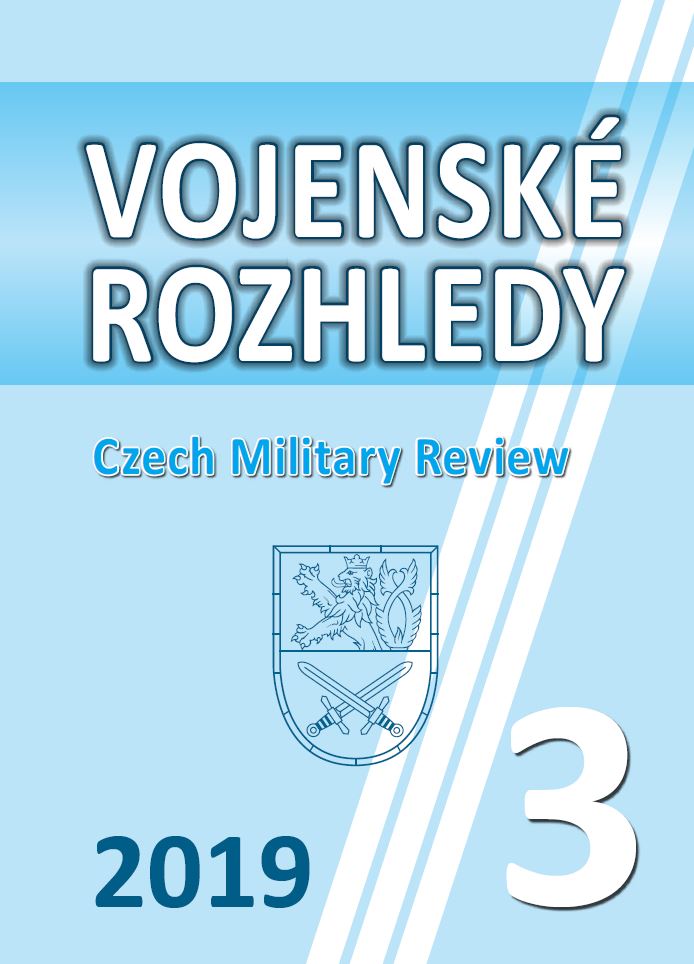
The main topic and focus of this article is to identify the most relevant indicators of the rise of religious extremism as an important cause of armed conflicts. A religiously motivated conflict is a relevant topic in modern security studies and research. Conflict prevention using the early-warning indicators identified in this article might be interesting for the security expert community. In the article chosen methodology is available with the recommendation to following research in the examined field.
More...
Review of: Ivanka Knežević - "Sociologija grada", priredio Sreten Vujović, Beograd, Zavod za udžbenike i nastavna sredstva, 1988.
More...